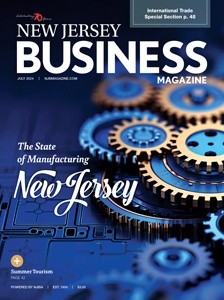
Breakdown: FTC ‘Non-Compete’ Ruling
On Jun 24, 2024By Brian J. Chabarek, Esq. and Zachary J. Styczynski, Esq. of Davison Eastman Munoz Paone, P.A.
The Federal Trade Commission (“FTC”) issued a long-awaited final rule on April 23, 2024 that bans non-compete clauses in contracts across the nation. The FTC expects that this new rule will promote economic competition by increasing worker wages, lowering healthcare costs, and leading to increased business formation by at least 2.7% per year (8,500 new businesses in the first year alone). The Final Rule invalidates almost all pre-existing non-compete clauses and prohibits an employer from entering into, or attempting to enter into, a non-compete clause with a “worker” (including, e.g., employees and independent contractors) or representing that a worker is subject to a non-compete clause. The Final Rule will become effective on September 4, 2024.
The Final Rule defines “non-compete clause” as “a term or condition of employment that prohibits a worker from, penalizes a worker for, or functions to prevent a worker from (1) seeking or accepting work in the United States with a different person where such work would begin after the conclusion of the employment that includes the term or condition; or (2) operating a business in the United States after the conclusion of the employment that includes the term or condition.”
The final rule does not apply to banks, savings and loan institutions, federal credit unions, common carriers, air carriers and foreign air carriers, non-profit organizations, and persons and businesses subject to the Packers and Stockyards Act. Outside of those industries, the major exceptions include (1) existing agreements for “senior executives” (defined below), (2) non-competes entered into in connection with the bona fide sale of a business, and (3) non-competes enforced where the cause of action accrued prior to the rule’s effective date.
A “senior executive” includes someone making at least $151,164 in annual compensation in 2023 _who also has “policy-making” authority for the entire organization (“job duties test”) (this is to be narrowly construed). This exception only allows for existing non-competes prior to the effective date, and does not allow for new non-competes with senior executives after the effective date.
Employers will have to provide clear and conspicuous notice to workers subject to a prohibited non-compete, in an individualized communication, that the worker’s non-compete clause will not be, and cannot legally be, enforced against the worker. Employers may still enforce and enter into non-solicitation agreements, confidentiality agreements, fixed term employment contracts, restrain employees from working concurrently, and others unless they are so broad that they functionally prevent a worker from working in the same field for another employer or in business for themselves.
However, many businesses disagree with this FTC Final Rule and assert that non-compete agreements can serve vital _ business and individual interests—_such as protecting investments in research and development, promoting workforce training, and reducing free-riding—that cannot be adequately protected through other mechanisms such as trade-secret suits or nondisclosure agreements. The Final Rule has already been challenged by Ryan LLC of Dallas, TX, and the U.S. Chamber of Commerce has intervened in the court case. The Chamber has filed a Motion to Stay enforcement seeking a preliminary injunction to prevent the rule from becoming effective, which the FTC has opposed. The Court is scheduled to decide the motion in early July.
Disclaimer: Sponsored content articles do not reflect the opinions of New Jersey Business Magazine or the New Jersey Business & Industry Association.



